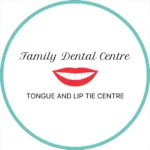Oral Health Changes with Age
Is tooth loss inevitable in your later years? How much should adults be concerned about cavities? Here you will find helpful answers to some frequently asked questions about oral health questions you may have as you get older.
Tooth Loss
Tooth loss is caused by plaque and made worse by food left in teeth, as it can affect your gums and contribute to receding. In addition, other things that can make this worse is use of tobacco products, poorly fitting bridges or dentures, bad diet, and certain diseases (e.g., anemia, cancer, diabetes). Gum disease is a leading cause of tooth loss.
Cavities
Older adults are also at risk of cavities. It is one of the most common chronic oral diseases among those age 65 and older. According to the National Institute of Dental and Craniofacial Research, 93% of seniors 65 and older have had dental caries in their permanent teeth.
Receding Gums
This is a gradual process where gums shrink away from teeth. It is commonly caused by gum diseases and poor dental hygiene. In addition, smoking, family history and teeth grinding (medical term is bruxism) are also possible contributing factors.
As the root of the tooth becomes exposed teeth may become sensitive to temperature. The teeth may appear longer as well. If it is untreated, the condition can lead to significant damage to oral tissues, an increased likelihood of gum disease, and tooth loss.
Preventative measures include practising good oral hygiene, quitting smoking, and avoiding sugary foods.
If you are an older adult experiencing signs of receding gums, visit your dentist as soon as you are able. So this way, you can discuss how to best address the issue. Treatment options range from deep cleaning or scaling, to surgical procedures such as gum grafts.
Dry Mouth
Many people experience a decrease in saliva production with age. This leads to a common syndrome known as dry mouth, also known as xerostomia. In addition, it is a well known side effect of many medications.
The problems with a reduction in saliva production is that acids and sugar build up more easily in the mouth. An acidic environment with sugar can lead to cavities, and further exacerbating the issues aforementioned. In addition, it can also result in dry, cracked lips and a swollen tongue—which makes it difficult to speak and swallow.
To mitigate some of these issues, drinking water more regularly and avoiding sugary foods and drinks will help significantly. Lozenges can also help stimulate saliva production in the mouth. Regularly rinsing your mouth will also stop acid from building up.
Oral Cancer
The risk of oral cancer does increase with age. Those who drink alcohol and smoke are at an even higher risk.
If there are signs of any sores, color changes in tissue, or ulcers, it is important to have a dentist check it out. Regular dental visits will help catch these issues early on. Early identification can save an older adult’s life. so regular dental exams will ensure that the gums and surrounding tissue are as healthy as possible.
National Survey Reveals Baby Boomers Miss Links Between Oral Health and Overall Health
Baby boomers looking for the warning signs of adult-onset diseases may be overlooking key symptoms in their mouth that should signal alarms about their overall health. According to a survey commissioned by the Academy of General Dentistry, 63 percent of baby boomers (ages 45-64) with an oral symptom considered to be a key indicator of a more serious health condition, were unaware of the symptom’s link to the condition. Boomers’ failure to recognize that oral health holds valuable clues could negatively impact their overall health.
Age and Oral Health
Home: www.familydentalguelph.com









